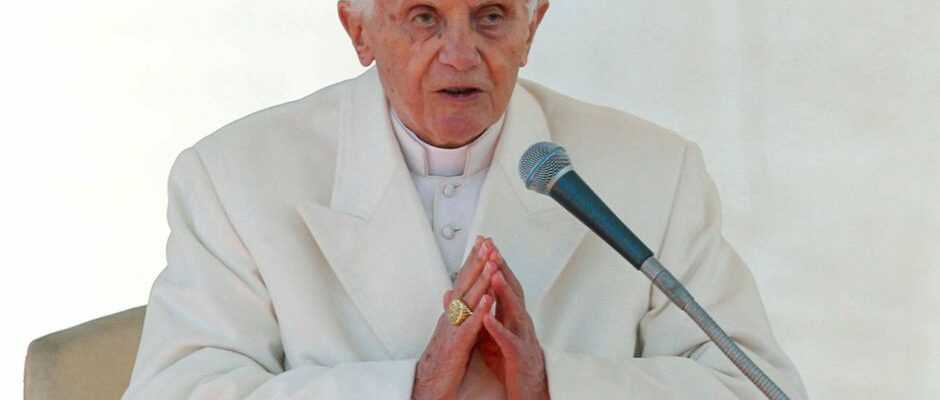Pope Emeritus Benedict XVI has admitted knowing of sexual assault charges against a priest when he was head of the Archdiocese of Munich and Freising.
Pope Emeritus Benedict XVI admitted Monday that he participated in a key meeting in 1980 on a German priest suspected of sexually abusing minors, contrary to what he told the authors of an incriminating report published last week.
In a letter made public by his private secretary and quoted by the German Catholic news agency KNA, Benedict XVI “wants now to clarify (the fact) that, contrary to what appears in (his) hearing, he participated in the meeting of January 15, 1980”.
His statements to the authors of the report released on January 20 by the firm Westpfahl Spilker Wastl (WSW) were “objectively incorrect” on this point, but Benedict XVI refutes any “bad faith”. The error, he claims, “is the result of an omission in the editing of his statements.”
He says to himself “sorry for this mistake and asks for forgiveness”.
According to this report, listing more than 400 victims of such violence in the Archdiocese of Munich and Freising which he led between 1977 and 1982, Cardinal Joseph Ratzinger, before he became pope, was aware of the child criminal past of a priest, Peter Hullermann, although he always denied it.
In 1980, this clergyman, suspected of serious assaults on minors, was transferred from North Rhine-Westphalia to Bavaria. However, according to the protocol quoted by the report, of the meeting on the admission of Peter Hullermann, his past was evoked and Bishop Ratzinger was present.
“Feeling of shame and remorse”
If he now recognizes his presence, Benedict XVI maintains that “no decision has been taken on the attribution of a pastoral mission to the priest concerned”. “Only the request to provide him with accommodation during his therapy in Munich was accepted,” he said.
The 94-year-old pope emeritus, who has been living in seclusion in a Vatican monastery since his resignation in 2013, has not yet directly reacted to the substance of the report, having not had time to read it in full, according to his private secretary. But he denies any responsibility in this case.
The Holy See for its part said it wanted to study the report in detail, reiterating “its feeling of shame and remorse” for the violence committed.
Pope Francis did not react directly, but the release of the report prompted a series of contrasting comments in Italy.
Jesuit Hans Zollner, a member of the Pontifical Commission for the Protection of Minors, said he was “shocked” and called for an investigation to be opened in Italy. “Criminals are hiding among us,” he told the daily La Stampa.
Msgr. Massimo Camisasca, a former bishop, sees for his part in this report a “maneuver against Ratzinger” coming “from within the Church”, believing that the pope emeritus “was the first to underline the gravity” of the facts .
Elected pope in 2005, Benoit XVI was quickly confronted with cascading revelations of sexual assaults by members of the clergy, for which he asked for “pardon” and advocated zero tolerance.
In 2019, during a rare speech, the German theologian had mentioned the sexual revolution of 1968 as having been one of the causes of the pedophilia scandals in the Church, arousing strong criticism.
Any reproduction prohibited
